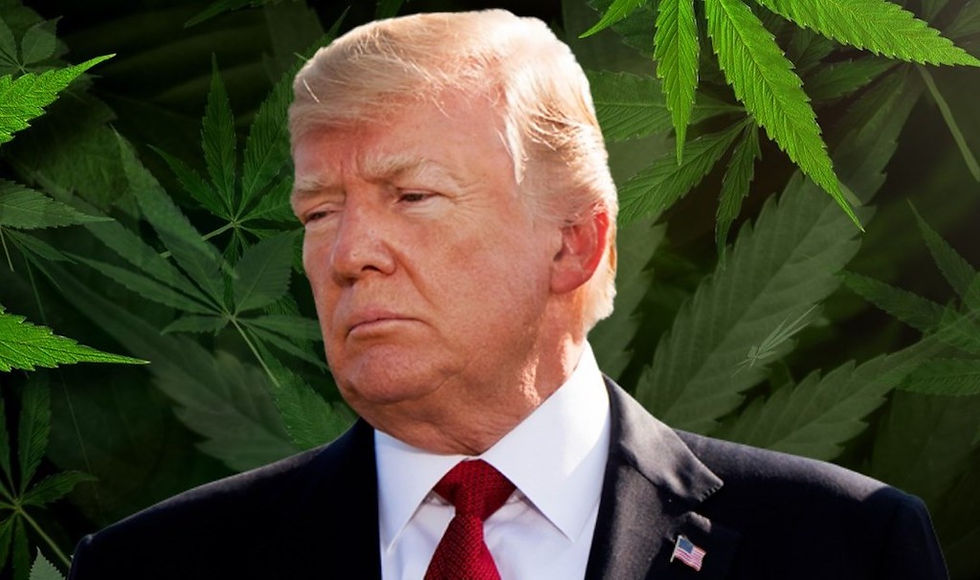Trump Says Putting Marijuana On The Ballot Makes Republicans Lose
- CannaNews.Buzz
- Aug 17, 2020
- 3 min read
President Trump on Monday urged Republicans not to place marijuana legalization initiatives on state ballots out of concern that it will increase Democratic turnout in elections.
The president, who has rarely weighed in on cannabis policy without being prompted, said in extemporaneous remarks at a campaign event that he blames marijuana legalization efforts on former Wisconsin Gov. Scott Walker’s (R) defeat in the 2018 election.
Legalization was not on the statewide ballot in Wisconsin in 2018—though there were several local, non-binding measures on reform proposals that passed that year.
“The next time you run please don’t put marijuana on the ballot at the same time you’re running,” Trump said, directing his advice to Walker, who was in the crowd. “You brought out like a million people that nobody ever knew were coming out.”
It should also be noted that Walker didn’t place these local initiatives on the ballot as Trump indicated. They were placed before voters by elected officials in each individual jurisdiction.
Walker, who has previously described cannabis as a gateway drug, lost to current Gov. Tony Evers (D). Evers has expressed openness to adult-use legalization and said he supports both decriminalizing marijuana and allowing its medical use.
Given Trump’s historic silence on cannabis policy, this statement is particularly surprising. It could be the case that he’s been made aware of studies indicating that, when legalization is on the ballot, Democratic turnout is strengthened. That said, evidence is mixed on that relationship.
It’s possible that Trump has been advised about potential marijuana-related challenges for his own reelection bid this November, as swing state Arizona will be voting on a cannabis legalization measure that will appear on the same ballot as his name.
Also of note is Trump’s framing of the state-level marijuana reform movement. He didn’t voice opposition to the policy change; rather, he focused on potential political ramifications for Republican candidates.
In the past, the president has voiced support for allowing states to set their own cannabis policies, going to far as to say he “really” supports bipartisan legislation to codify the rights of states to implement marijuana programs without fear of federal interference.
Last year, Trump said that “right now we are allowing states to make that decision” with regard to cannabis policy after a reporter brought up studies signaling that states with marijuana legalization on the books experience fewer opioid overdoses.
Last week, Trump weighed in on Sen. Kamala Harris’s (D-CA) prior comments on cannabis shortly after she was announced as Joe Biden’s vice presidential running mate.

While he declined to explicitly discuss the senator’s marijuana policy positions after being pressed on the issue, he said “she lied” and “said things that were untrue” when presented with details about an interview she gave last year in which she discussed smoking marijuana in college.
That conversation was particularly interesting given that Trump’s reelection campaign has been attacking Biden as an “architect” of the drug war who authored punitive laws during his time in the Senate and framing the incumbent president as the criminal justice reform candidate.
That said, Trump’s administration has taken several hostile actions on the marijuana front that stop short of a full-scale crackdown on businesses in legalized states.
Both Trump and Biden have spoken in favor of medical cannabis. And Biden has put forward plans to decriminalize marijuana possession, modestly reschedule the plant and facilitate expungements for prior cannabis convictions.

Comments